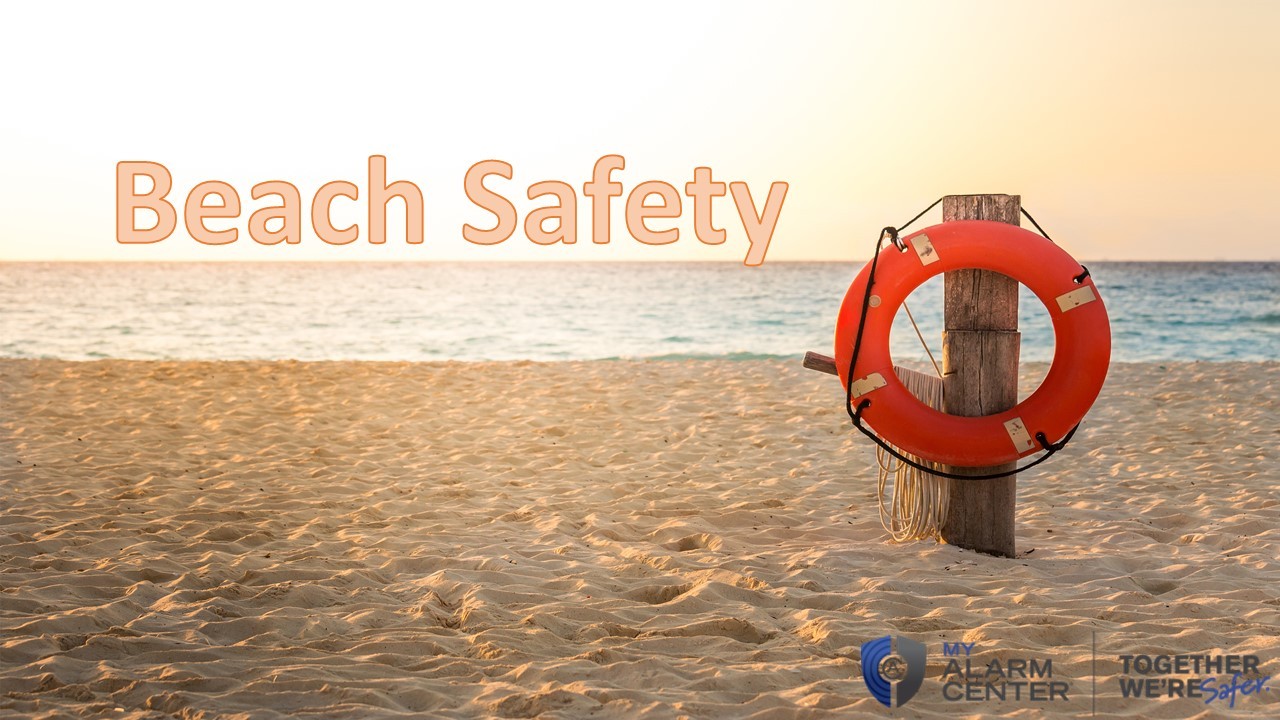If you are planning to squeeze in a last minute beach trip or travel to the coast for Labor Day weekend, make sure you take the proper safety precautions before you see the sea.
General Beach Safety:
- Try to swim as close to a lifeguard station as possible. The chances of drowning with a lifeguard on duty are five times lower than if you swim without a lifeguard.
- Make sure to apply and reapply sunscreen. More than 5 bad sunburns in a lifetime double your chance of getting skin cancer.
- Also, make sure to drink lots of water and to stay hydrated throughout the day. Swimming in the ocean and baking in the hot sun can take a toll on your body.
- Keep your trash together and do not litter in the water or along the shore.
Ocean Water Safety:
- It is very important that any child who will be in the ocean knows how to swim or is wearing a properly fitting life vest.
- Adults should remain sober to maintain their own safety, especially if they are responsible for other people.
- Do not swim alone, always maintain the buddy system, even as adults.
- Enter the water feet first always. Avoid diving into the water until you know the actual depth.
- The ocean has varying floor levels and it is important not to wander too far from the shore’s edge.
- Leave any animals you encounter alone and stay away from jellyfish and sharks.
Rip Currents:
- It is important to understand that rip currents are very strong and are the cause of most lifeguard rescues along the beach.
- They can form in any large open water and are especially common near the breaks of sandbars, in shallow areas, or near piers.
- If you do find yourself stuck in a rip current, do not struggle. Swim parallel to the beach to get out of the current. Do not attempt to move to shore until you are released from the current.
- If you feel like you cannot swim to shore, remain afloat and wait until you get the strength to move back to shore.
- If you notice someone who is struggling make sure to alert a lifeguard or call 911 immediately.
Flags:
- Lifeguards often use flags to indicate different types of weather patterns or to signify anything you should be aware of. Most commonly the flags are different colors. If you do not know what they mean, feel free to ask the lifeguard at any time. Most commonly the flags mean:
- Red: This means there is a strong current or the beach is closed.
- Yellow: This indicates moderate current and is not exceedingly dangerous. Caution should still be exercised if the yellow flag is flying.
- Green: This indicates the ocean is calm and clear.
- Blue or Purple: This indicates that dangerous marine life has been spotted nearby. This could mean sharks, stingrays, or jellyfish.
Check The Weather:
- Check if there is any chance of rain or a thunderstorm in the potential forecast.
- If you hear any thunder, make sure you get out of the water and head to safety.
- Wait at least 30 minutes after hearing thunder or seeing lightning to re-enter the water.
Marine Life:
- Be aware of marine life and how to handle any bites or stings.
- Be aware of the fact you are swimming in an ecosystem of different animals.
- Barnacles and the shells of muscles can be very sharp along the ocean floor, so make sure to be careful of the areas you are walking in.
- If you do get cut, get out of the water immediately and properly take care of any wounds.
- Jellyfish have the potential to release poisonous venom into your skin. Not all jellyfish stings are severe but they do have the potential to be very dangerous. Most stings can be treated at home, it is suggested to use a credit card or something flat to remove the stingers from your skin. Do not attempt to use your hands because this will allow the stingers to spread. Rinse the area with sea water, fresh water or urine may activate the venom that is injected, causing more pain. Rinsing with vinegar or baking soda should keep the sting from being too painful. After it is rinsed clean, submerge the sting in hot water for 20 minutes to release any other poisons.
- Many people fear shark attacks, which are actually very uncommon. There is an average of 50 shark attacks around the entire world yearlong. These attacks are commonly from mistaking a human for a seal or fish. Avoid wearing shiny jewelry and swimming at dusk for the best protection.
While My Alarm Center works to keep you safe at home, it’s up to you to take the proper precautions when traveling, especially at the beach. This summer make sure you teach your entire family about beach safety.

